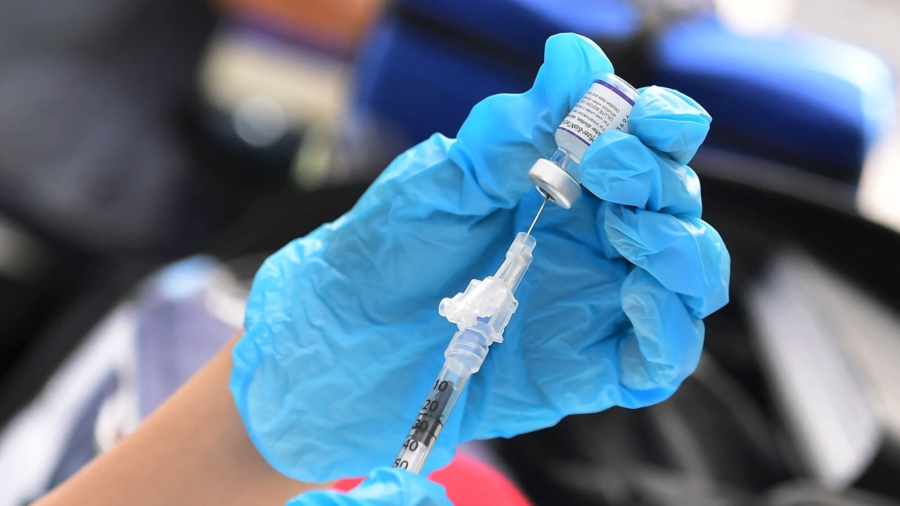An analysis of COVID-19 transmission by researchers at the University of California–San Francisco (UCSF) found that both natural immunity from prior infection and COVID-19 vaccines helped to reduce the likelihood of transmission.
UCSF researchers studied COVID-19 infection data from all 35 adult prison facilities in California’s state prison system and looked at transmission between people sharing the same prison cells. Their study focused on transmissions between December 2021 to May 2022, as the Omicron variant of SARS-CoV-2 spread.
The researchers found that unvaccinated individuals who had been infected with the Omicron variant had a 36 percent risk of transmitting the infection to close contacts while vaccinated individuals had a 28 percent risk of transmitting an Omicron infection to their close contacts. As researchers adjusted their analyses to account for vaccination, prior infection alone, and both vaccination and prior infection, they found that infection risks were reduced by 22 percent, 23 percent, and 40 percent respectively.
Overall, the study found that COVID-19 infections were common despite a relatively high vaccination rate of 81 percent in the California prison system. The rate of serious illness, however, was low. Researchers recorded 22,334 confirmed SARS-CoV-2 Omicron infections, 31 hospitalizations, and no COVID-19 deaths during the five-month study period.
“Regardless of the benefits you see in vaccination and prior infection, there is still a high amount of transmission in this study,” said Sophia Tan, the first author of the study.
Natural Immunity Contributed to Lowered Virus Transmission
The study found that a person who had gained natural immunity through a prior infection had a 23 percent likelihood of transmitting COVID-19 compared to a 33 percent transmission risk for someone who had no previous infection.
The UCSF study also found that people with natural immunity had a lower likelihood to transmit the virus than individuals who only had their primary vaccine series with no prior infection and no booster doses.
The study also looked at the effectiveness of hybrid immunity obtained through both a vaccine and a prior infection, finding that those with such immunity were 40 percent less likely to transmit the virus.
“Half of that protection came from the immunity that one acquires from fighting an infection and the other half came from being vaccinated,” said the UCSF summary of the study findings.
Vaccines Lost Effectiveness Over Time
The UCSF researchers found that vaccinated participants generally were less likely to spread COVID-19 than those who were unvaccinated, but their likelihood of transmitting the virus grew by 6 percent for every five weeks that passed since their last vaccine shot. Researchers found that transmission risks were reduced by about 11 percent for each additional vaccine booster dose they received.
“A lot of the benefits of vaccines to reduce infectiousness were from people who had received boosters and people who had been recently vaccinated,” said Nathan Lo, MD, PhD, a faculty research fellow at UCSF and the senior author of the study.
Lo also said the period within the two months following vaccination is when people are the least infectious, “which indicates that boosters and large timed vaccination campaigns may have a role to reduce transmission in surges.”
Among the limitations listed for the study is the possibility that individuals in the study could have been infected by individuals outside their cell, while the study only looked at the probability of transmission within their shared cells.
The study also found another potential limitation through interruptions in testing capacity and inmates who declined testing. That limitation means “it is possible that infections among some residents may not have been captured.”

